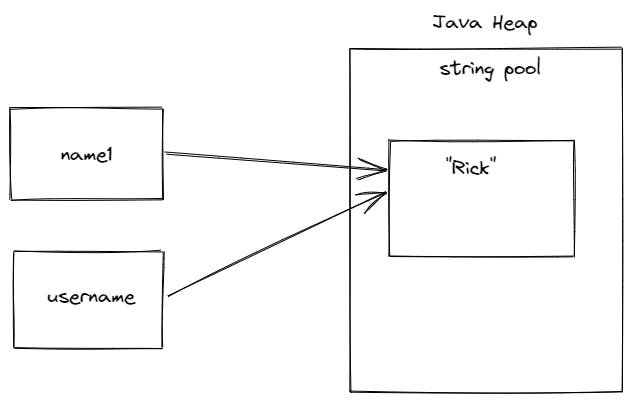Immutable Strings: A Secret Component in Ensuring Information Consistency and Dependability
In the realm of data administration, the importance of unalterable strings can not be overemphasized. These constant series of characters play a pivotal role in maintaining the stability and precision of info within systems. By maintaining a state of immutability, information uniformity is ensured, cultivating a structure of reliability whereupon crucial procedures depend. The idea of immutable strings goes beyond mere formality; it is a cornerstone in the facility web of information administration. As we discover the benefits, implementation techniques, and practical applications of immutable strings, a clearer image emerges of their crucial nature in securing the digital landscape.
The Concept of Immutable Strings
Unalterable strings, a fundamental idea in programming, describe strings that can not be modified as soon as they are developed. Fundamentally, as soon as a string worth is designated, any procedure that shows up to modify the string really develops a new string. This immutability makes sure data consistency and dependability in applications, as it stops unanticipated modifications to the original data.
Advantages in Data Consistency

Data consistency is critical in different facets of software application advancement, including data source monitoring, multi-threaded settings, and dispersed systems (Why are strings immutable in Java?). Unalterable strings add substantially to accomplishing this uniformity by protecting against data corruption because of simultaneous accessibility. In circumstances where numerous procedures or strings interact with the same data concurrently, immutable strings act as a safeguard against race problems and synchronization concerns
Moreover, the immutability of strings simplifies debugging and screening procedures. With unalterable strings, developers can rely on that as soon as a string is set, it will continue to be unchanged, making it simpler to map the source of mistakes and guaranteeing that examination cases produce consistent outcomes. This integrity in information taking care of eventually brings about extra durable and steady applications.

Executing Unalterable Strings
Making certain the immutability of strings calls for a thoughtful strategy to their application in software application advancement. As soon as a string item is created, one essential method is to make string courses in a means that prevents alterations. By making strings immutable, designers can enhance information consistency and reliability in their applications.
To apply immutable strings efficiently, programmers ought to prefer producing brand-new string items as opposed to modifying existing ones. This method ensures that as soon as a string is appointed a value, it can not be altered. Furthermore, any kind of procedure that shows up to change the string ought to develop a brand-new string with the desired click this link modifications rather than modifying the initial.
Additionally, utilizing immutable strings can simplify concurrency monitoring in multi-threaded atmospheres. Given that immutable strings can not be changed after development, they can be securely shared among numerous threads without the danger of information corruption.
Function in Dependability Guarantee
In software application growth, the utilization of unalterable strings plays an essential function in guaranteeing the dependability of data procedures. Immutable strings, as soon as created, can not be modified, ensuring that the data they represent stays consistent throughout the application's execution. This immutability residential or commercial property offers a degree of assurance that the information being refined will not be accidentally transformed, resulting in unexpected outcomes or errors in the system.
By incorporating immutable strings into software application layout, developers can enhance the integrity of their applications by lessening the dangers connected with mutable information - Why are strings immutable in Java?. Immutable strings help in preventing information corruption or unintentional modifications, which can be particularly important when dealing with sensitive details or when data stability is vital
Moreover, using immutable strings streamlines simultaneous processing, as several threads can securely accessibility and share string data without the threat of one string modifying the content while an additional reads it. This facet contributes considerably to the general reliability of the software program system, making sure constant and foreseeable actions in data taking helpful site care of operations.
Applications and System Integration
The smooth assimilation of immutable strings right into various applications and systems is essential for ensuring durable information uniformity and reliability across diverse technical environments - Why are strings immutable in Java?. Unalterable strings play an important duty in improving the honesty of information exchanges and interactions within complex software ecological communities. By incorporating unalterable strings right into applications, programmers can minimize the threats connected with information meddling, unapproved modifications, and unintended modifications, thus strengthening the total protection stance of the system
In the context of system combination, immutable strings serve as a fundamental aspect for developing safe interaction networks and helping with seamless data transfers between different elements. Their immutable nature guarantees that data transferred in between systems stays unmodified and proven, decreasing the possibility of disparities or errors that could jeopardize the honesty of the whole system. Moreover, unalterable strings can improve interoperability between disparate systems by giving a standardized style for data representation, making it possible for extra reliable data processing and exchange protocols across interconnected platforms. By adopting immutable strings in applications and system assimilation processes, companies can strengthen their data framework and maintain the dependability and uniformity of their details properties.
Final Thought
In conclusion, unalterable strings play an essential duty in preserving data consistency and integrity in different applications and system assimilations. By guaranteeing that strings can not be transformed once developed, the honesty of data is maintained, reducing the risk of inconsistencies and errors. Applying immutable strings can substantially enhance the integrity of systems, ultimately leading to even more dependable and precise data processing.

Comments on “Why Are Strings Immutable in Java? Secret Factors and Advantages Discussed”